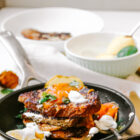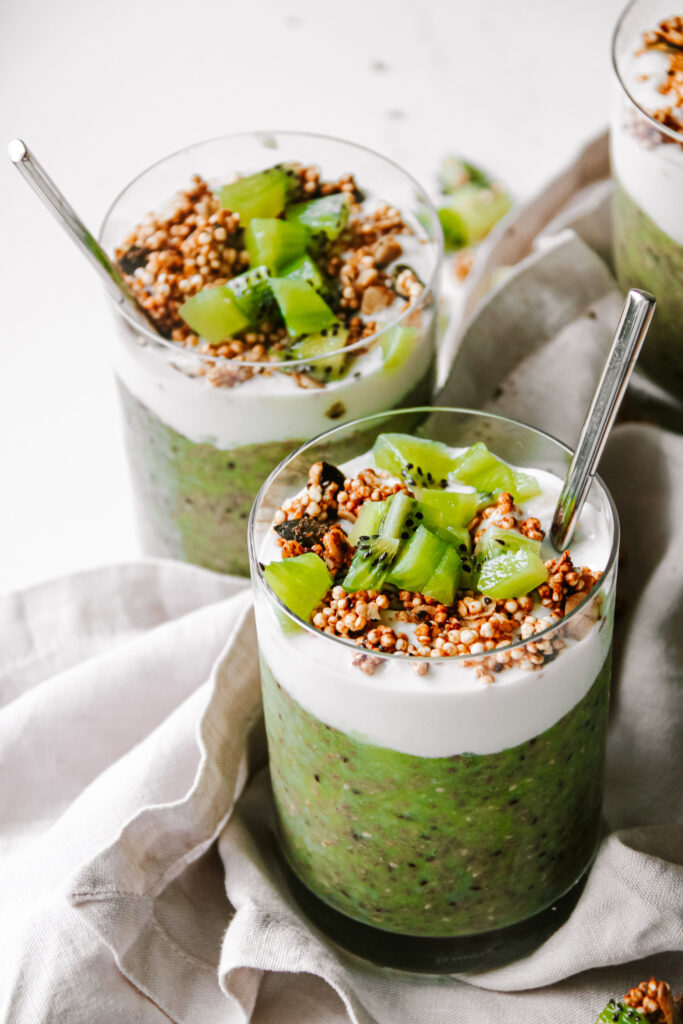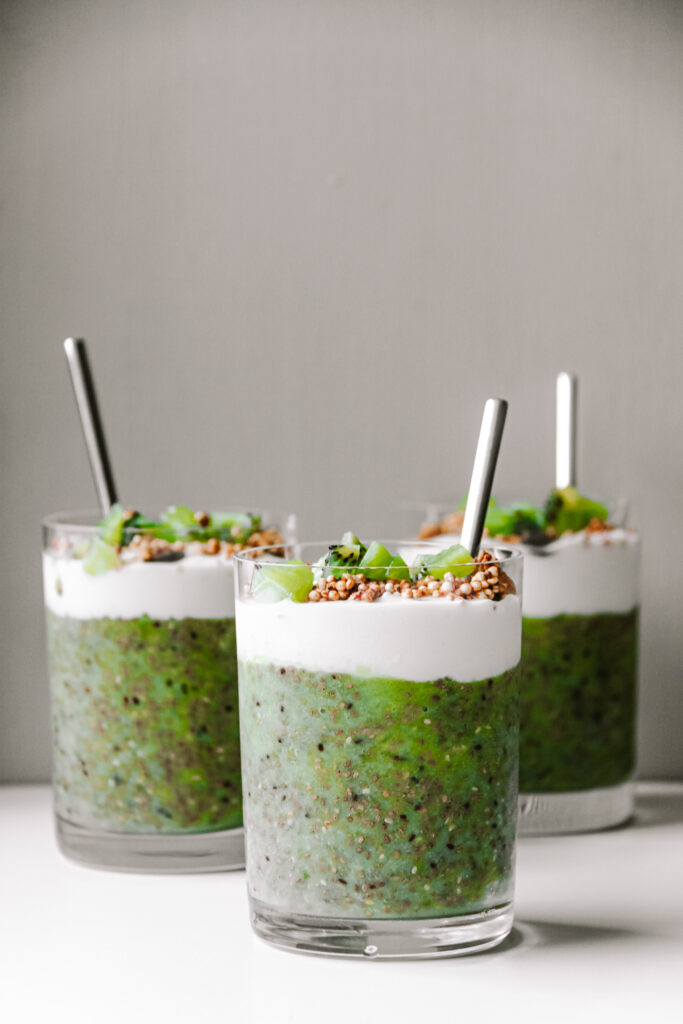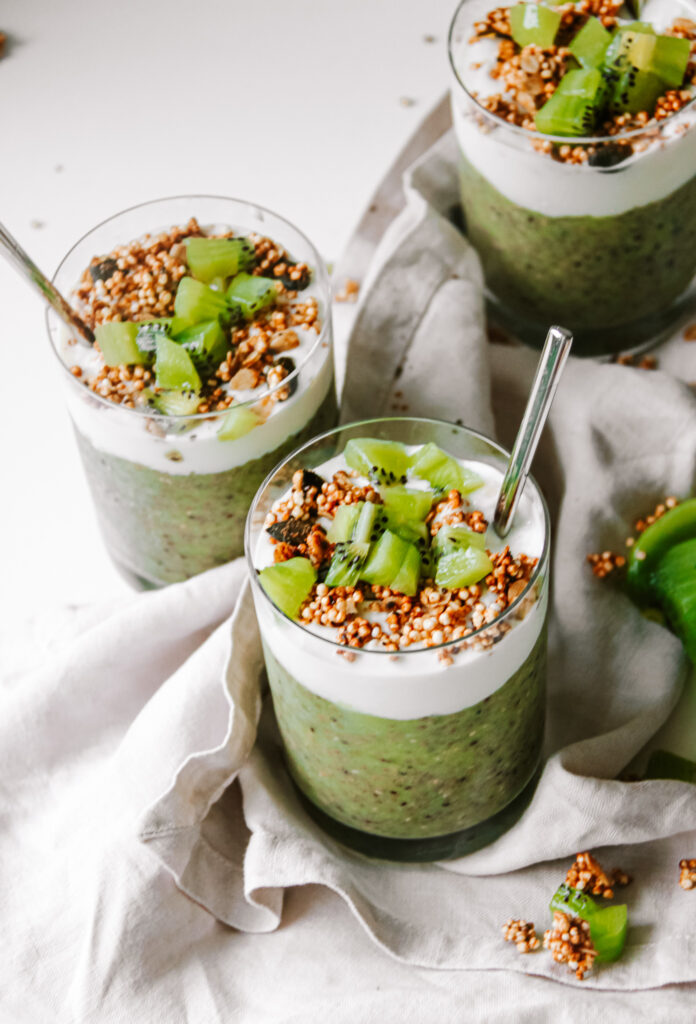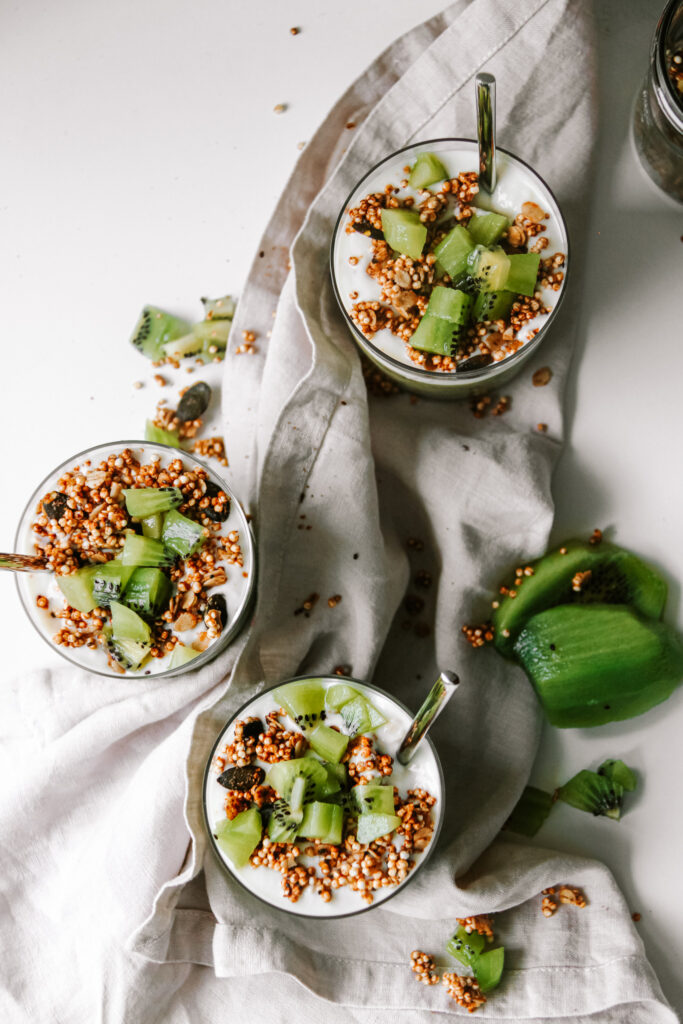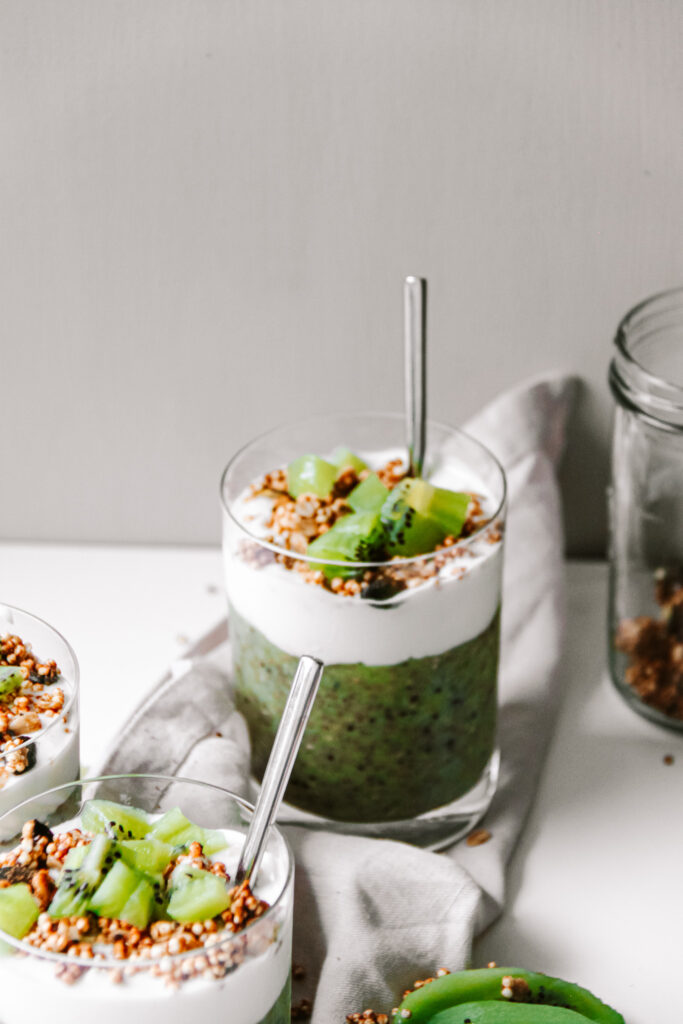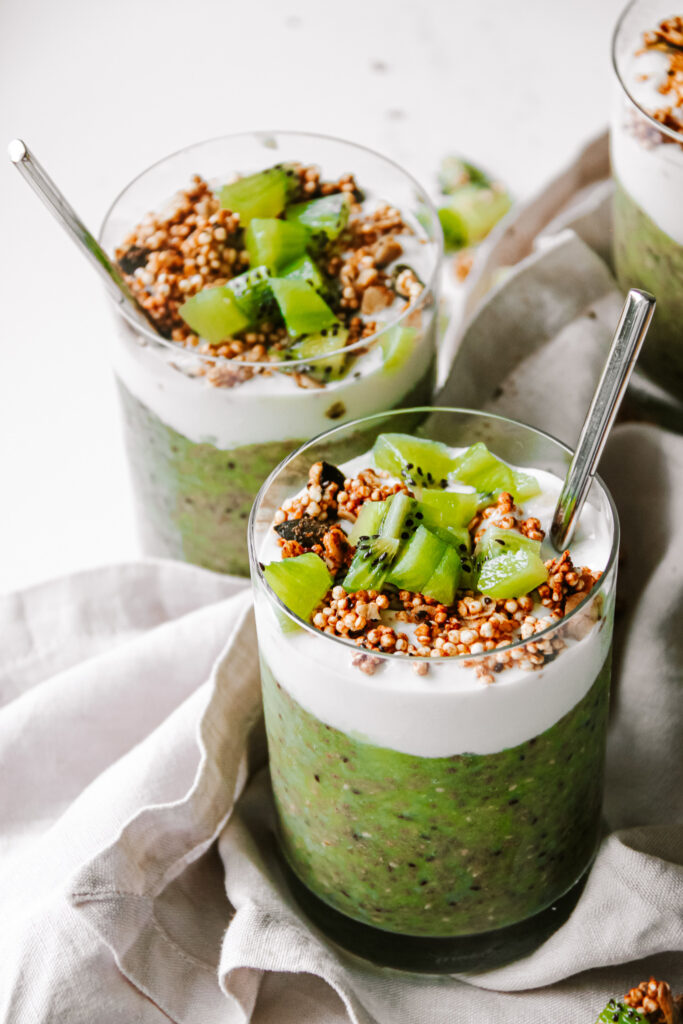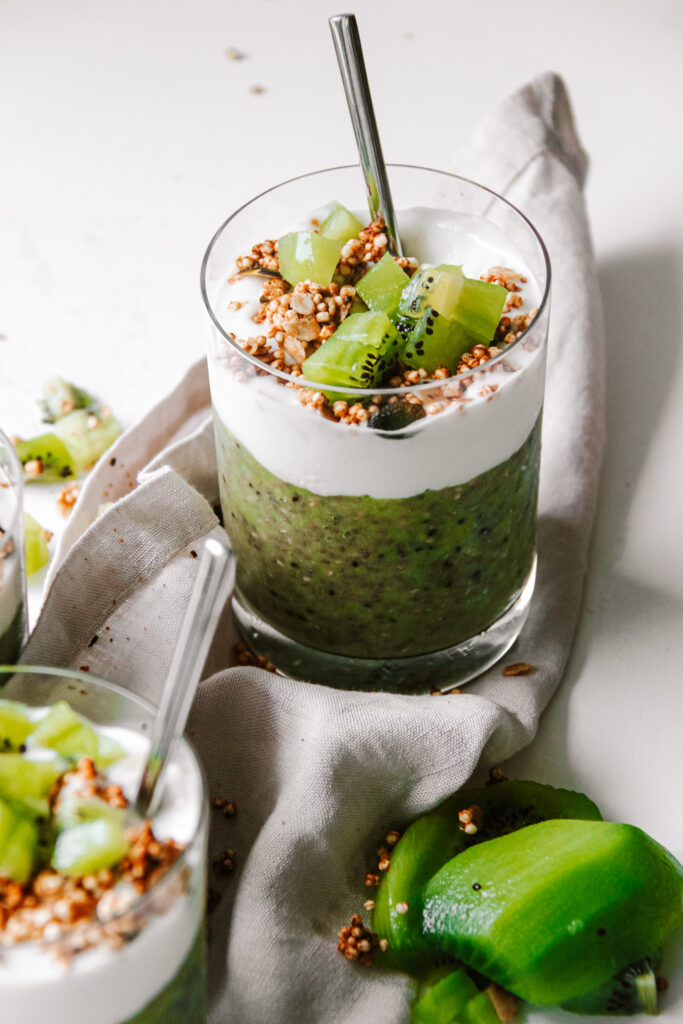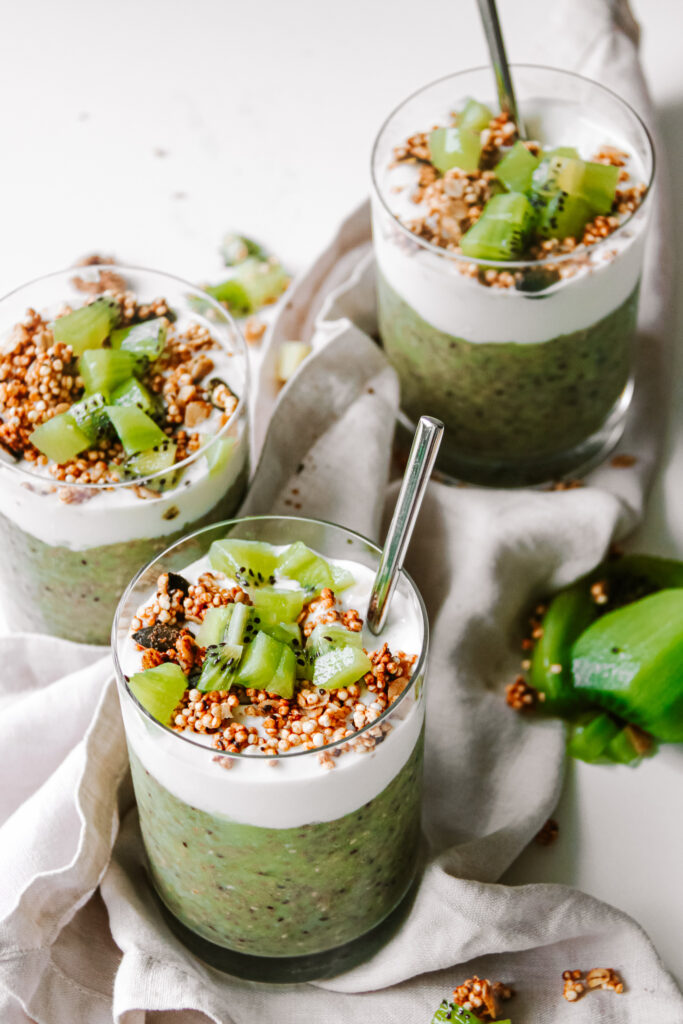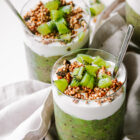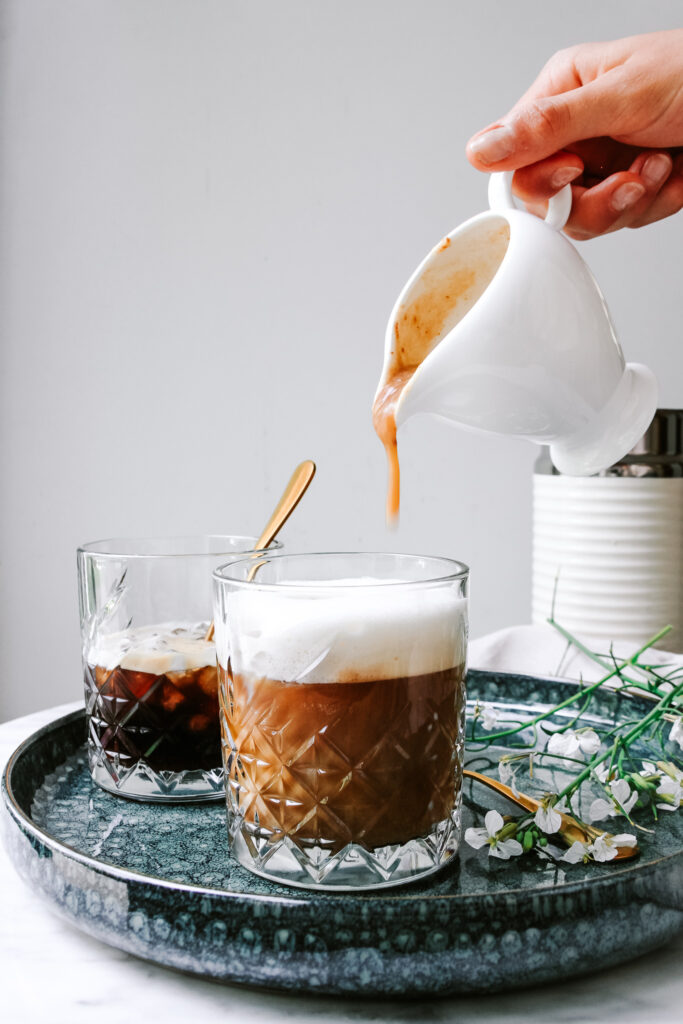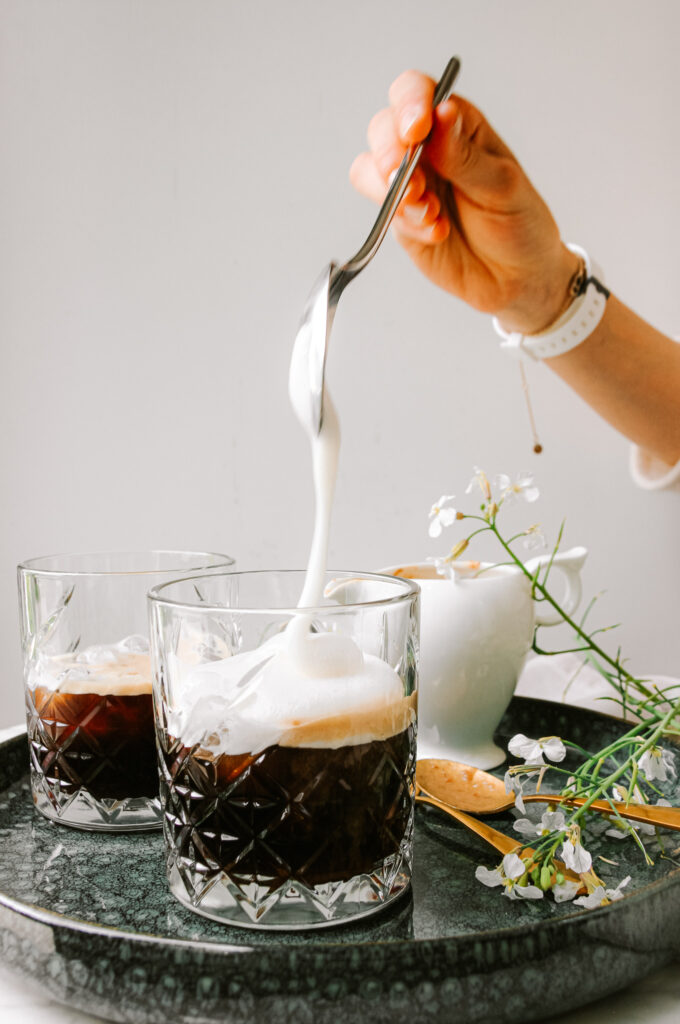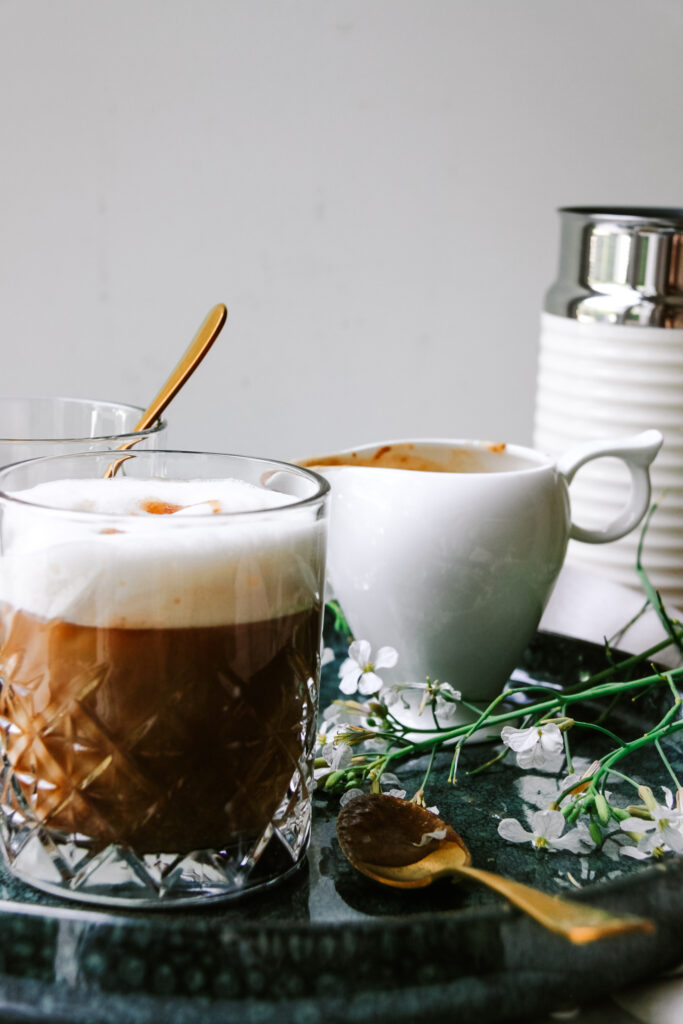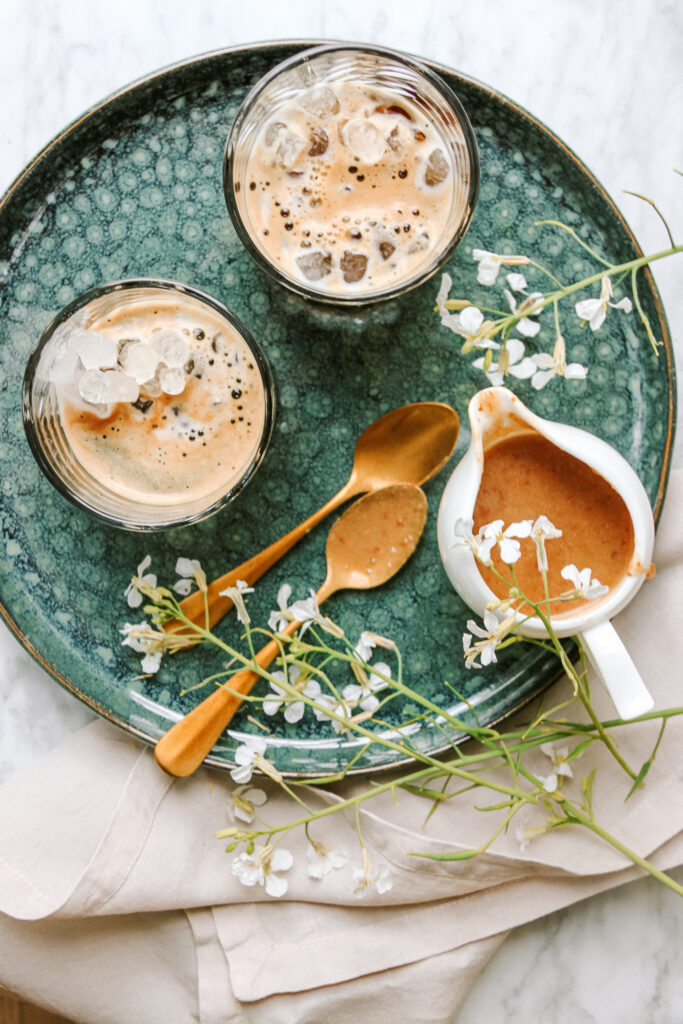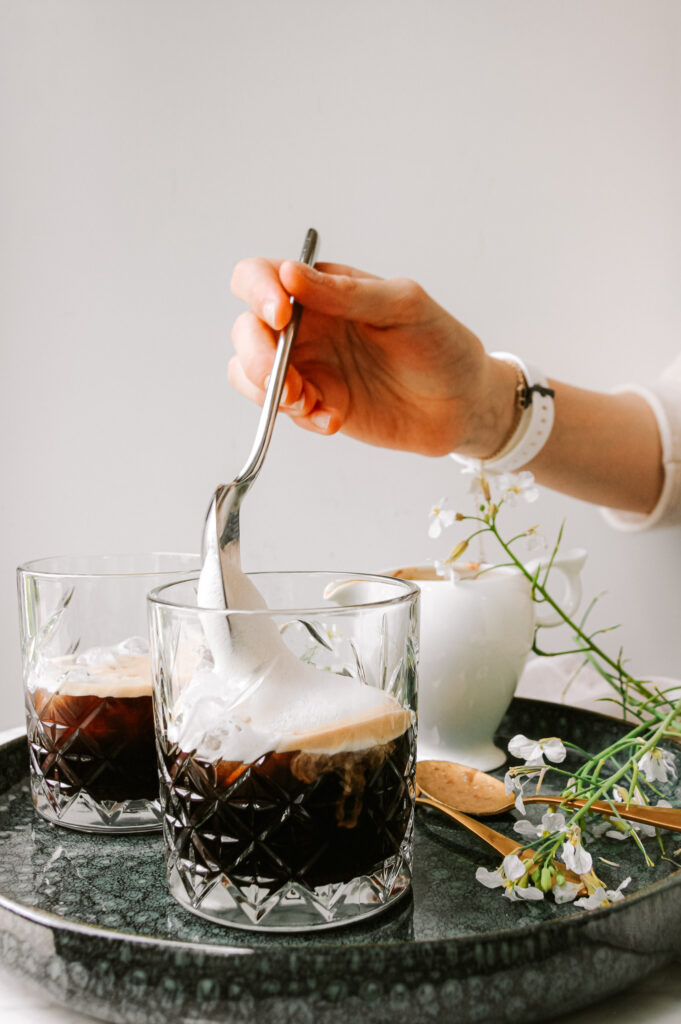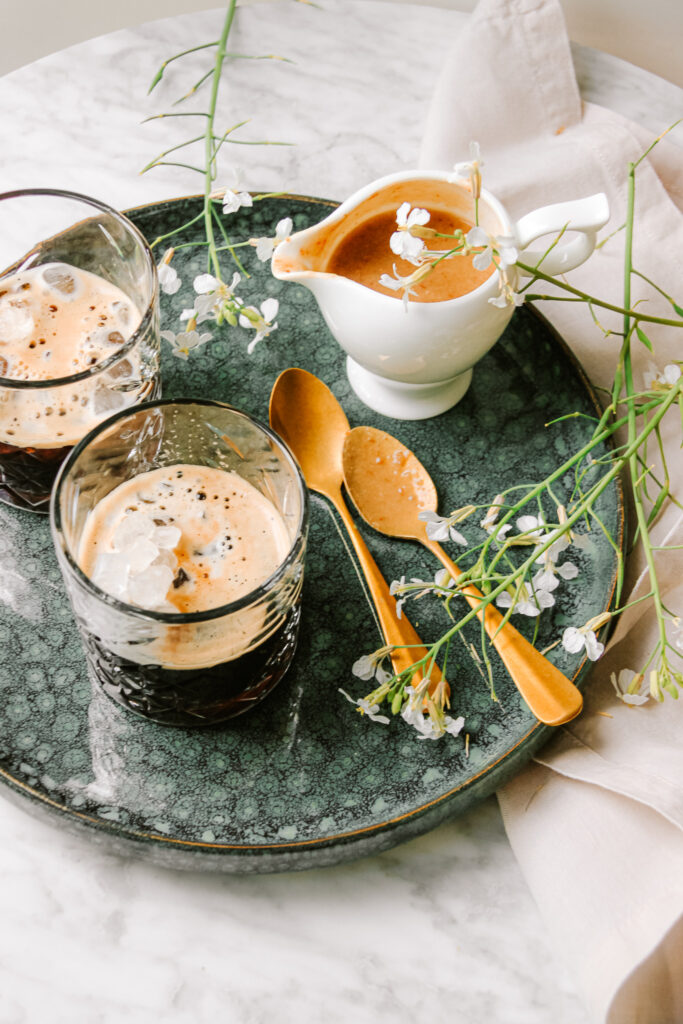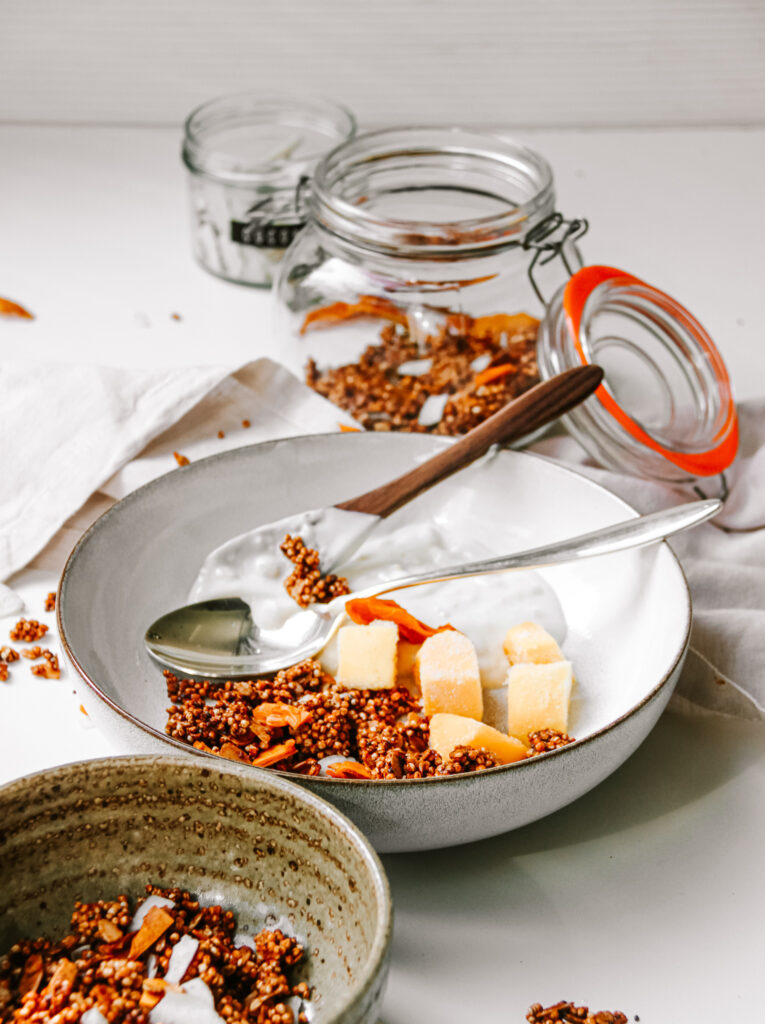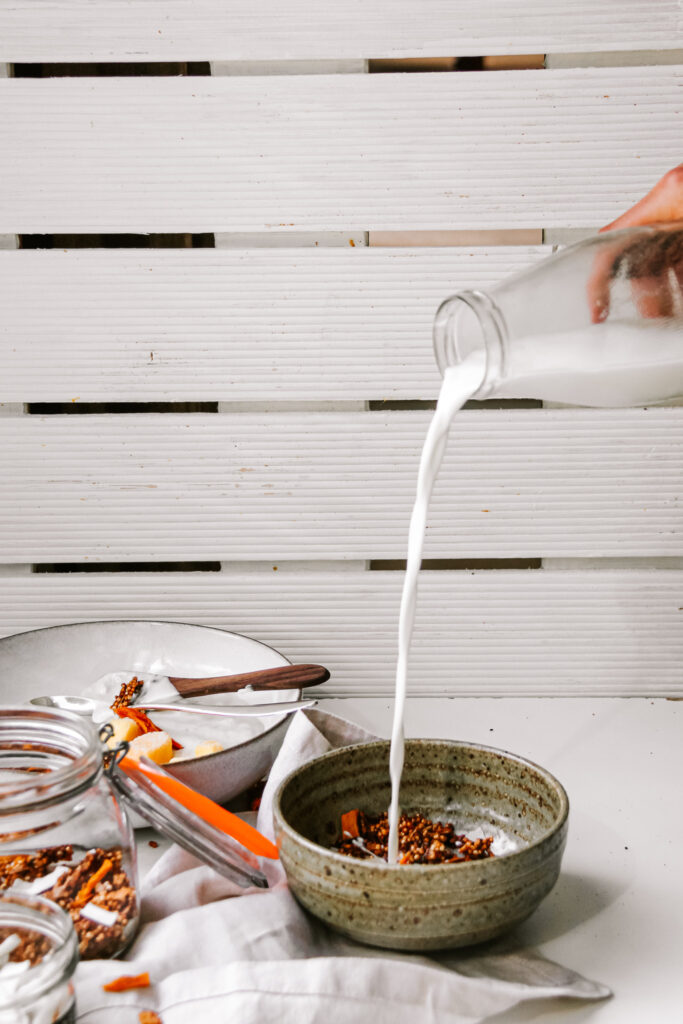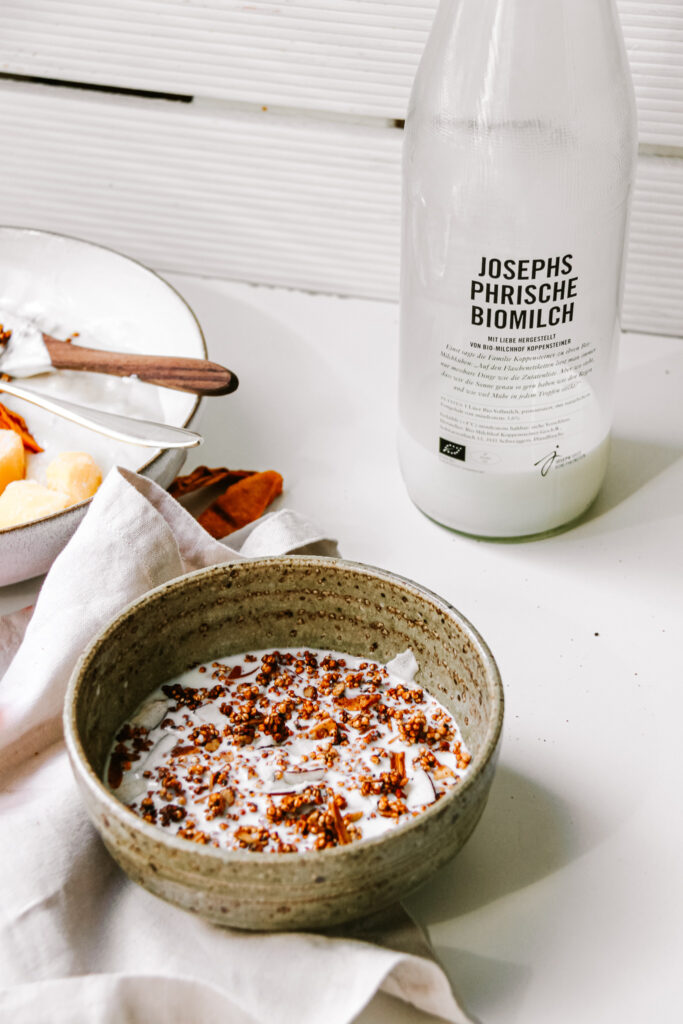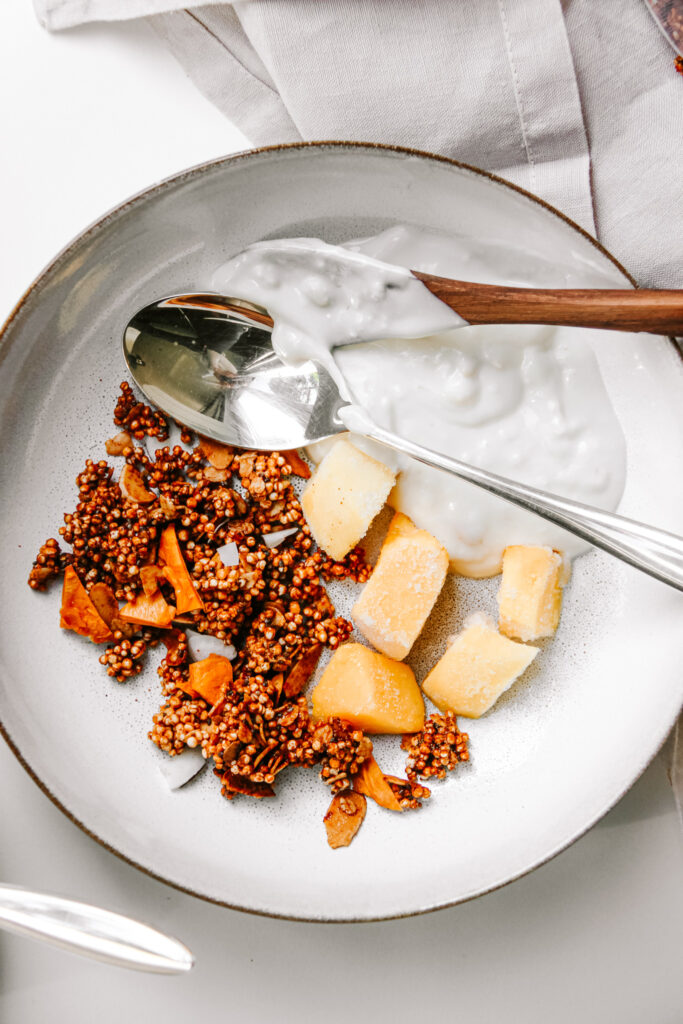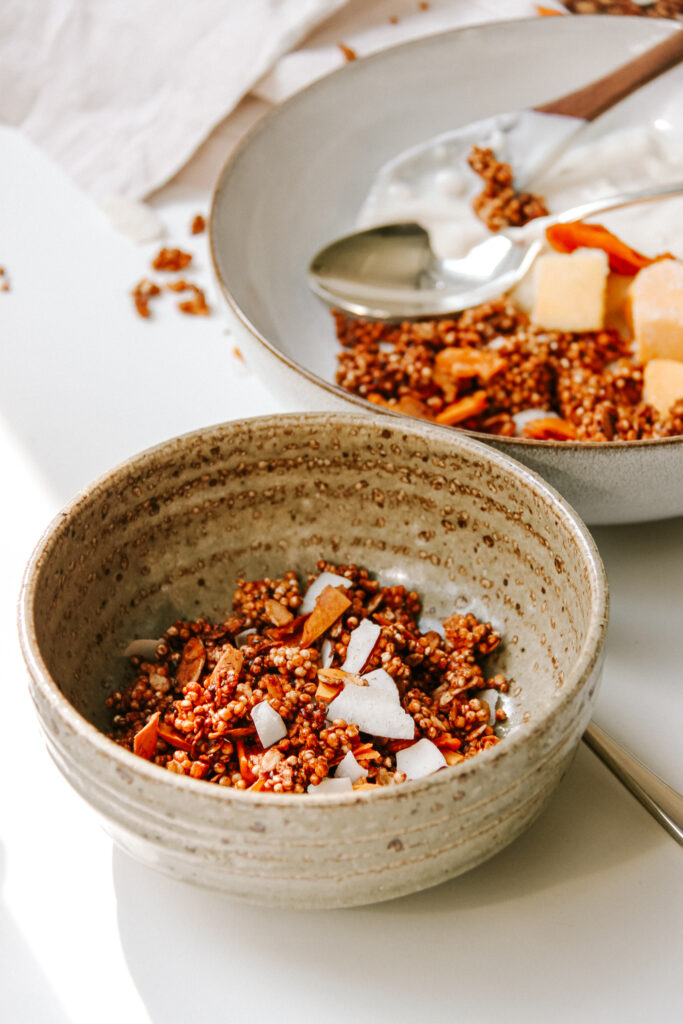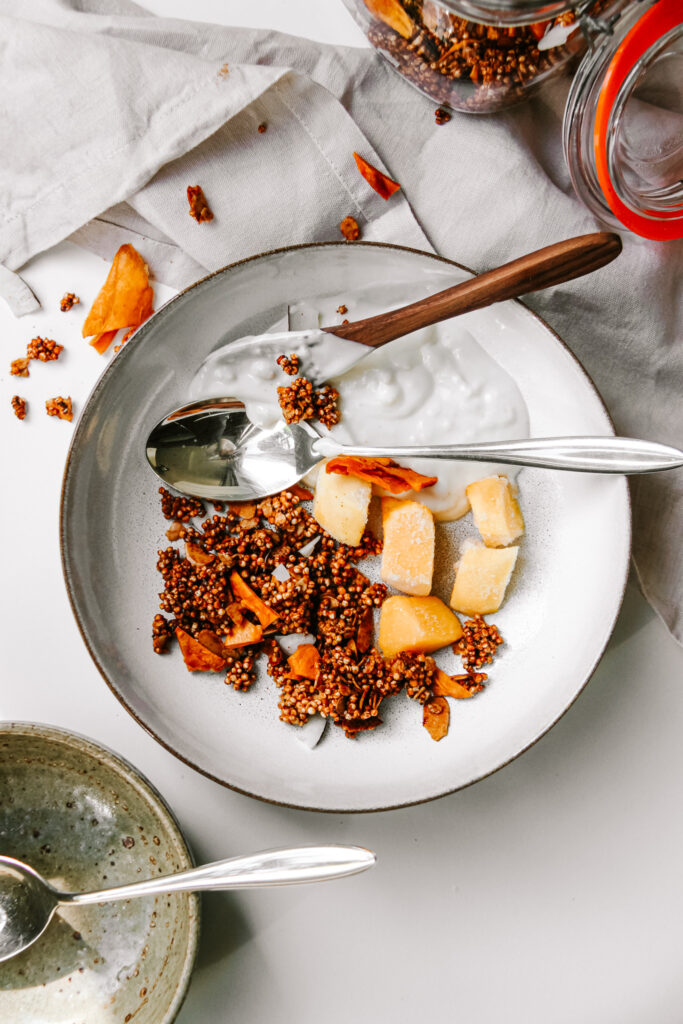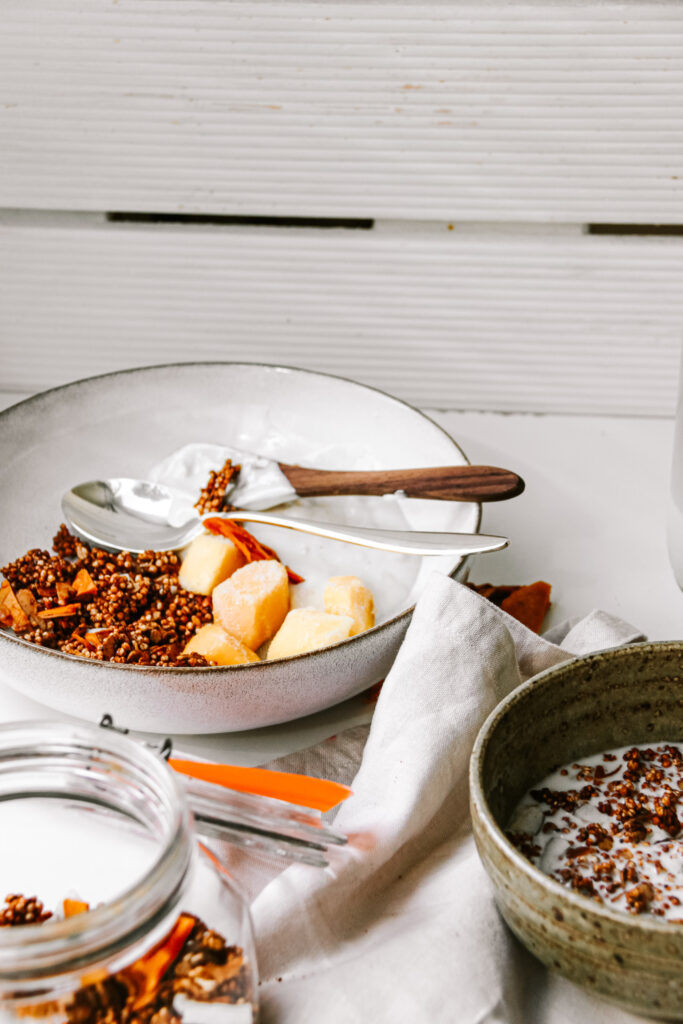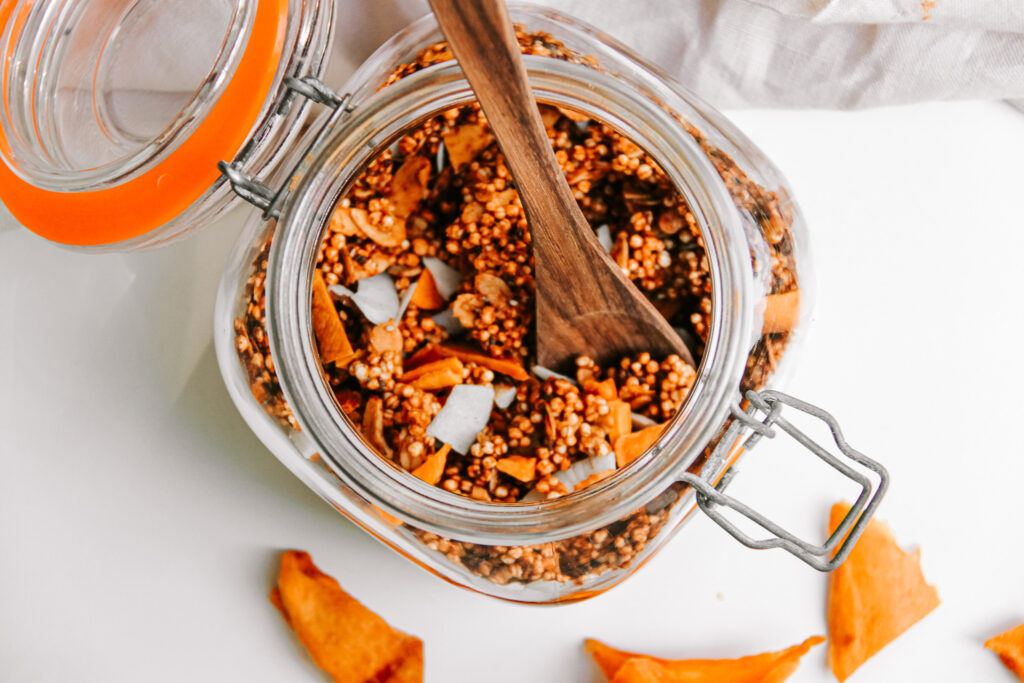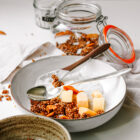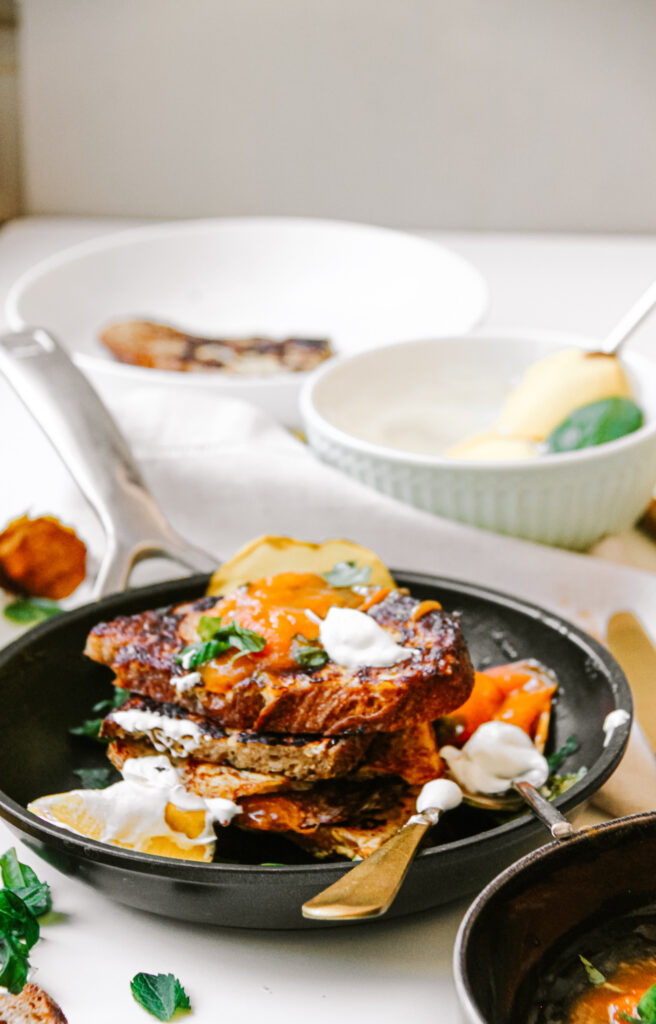
This recipe post is a very special one to me. I do not just want to introduce a super delicious and healthy recipe to you but I also want to address a topic with this: sustainability and food waste in the kitchen. I believe that there is way to much food thrown away and that way to often we do not care about making conscious and sustainable decisions in the kitchen. With this recipe I designed one that is low to zero waste, that is fully organic and local and that is made of regional ingredients from Austria. Kind of a back to the roots recipe to raise awareness of how wasteful we can be in the kitchen.
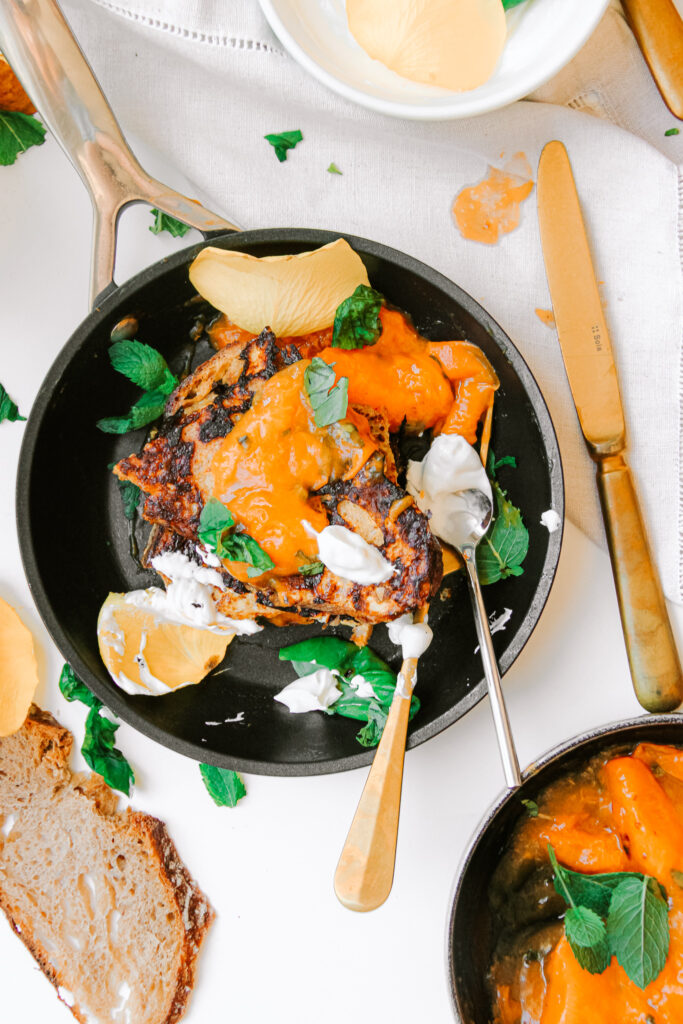
But first, what even is French toast?
I think most of us know, but not everyone. French Toast is bread that has been soaked in milk, eggs, and sugar (traditionally) and then is fried in a pan, served with syrup. In Austria it also is very popular with the name „Armer Ritter“. It is something actually pretty traditional in the Austrian cuisine but has only become really popular with the American name „French Toast“.
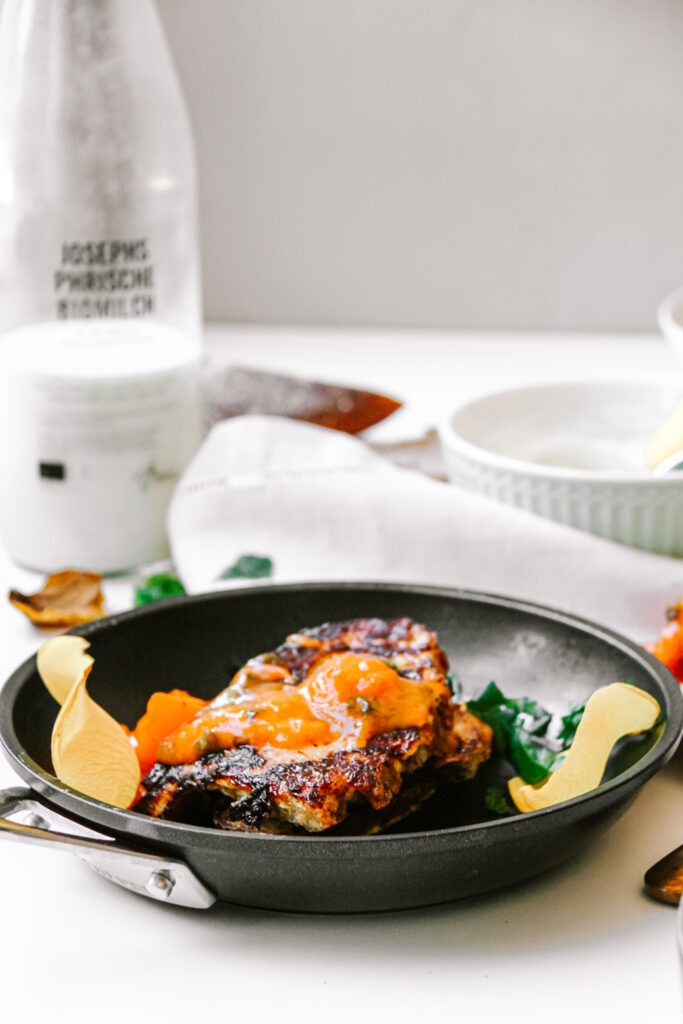
How to reduce (food) waste with French toast
The great thing about this dish is that it is something we Austrians would call „Restlessen“. This literally translates to eating the remains, so what’s left. It is an amazing (and pretty tasty) way to use leftovers.
- Instead of throwing bread away that is one week old and already pretty stale, you can use it for this recipe. That way you save food from being thrown away AND you make a super tasty meal. A win win. But it still is by far not popular enough, unfortunately, that’s why I want to encourage you to give it a shot. Next time you consider throwing bread away, try this out.
- Similar goes for the apricots. I sometimes feel that apricots are like avocados. They are not ripe for a week and then suddenly one day they are and the next they go bad. And if you do not want to make something with the apricots this one exact day when they are good, you are likely to throw them away. Which is sad. When you cook them down, add some lemon juice, a little sweetener and some fresh basil you basically make something like jam (Marmalade). And this will last for several days in the fridge. Again, you do not have to throw anything away and you create something super tasty. What I love most about this is that you can add this „jam“ to basically anything from yogurt bowls, porridge, cake to ice cream or another dessert cream. And no, you cannot only make this with apricots. With pretty much any fruit it works. Peaches, berries, cherries, whatever you have on hand and you feel like you can use up.
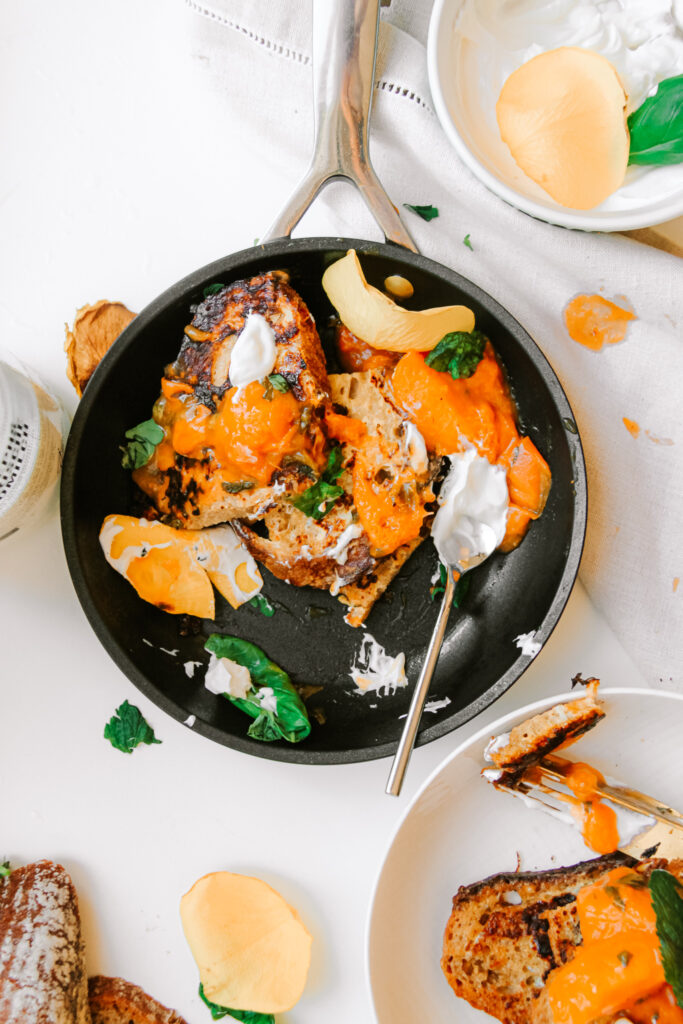
What about the rest?
Well, that’s the two main components that are contributing to reduce waste. But what about the rest? We still need milk, eggs, sweetener, oil and yogurt. So one by one.
- Milk: As for the milk, I love to buy it as Joseph Brot . This comes from Austrian farmers, is all organic and packaged in glass bottles. Glass bottles are amazing because they are reusable. And also if you cannot return them you can use them at home for example when you make fresh smoothies or juices. Reuse and reduce waste.
- Bread: Joseph Brot to be honest is where I go for most of my organic ingredients for recipes like those. Not only do they have the best and organic sourdough bread in whole Vienna, which is made of grains from Austria but it also comes in paper bags. No plastic.
- Yoghurt: Moreover they have organic Austrian yoghurt. Another ingredient for this recipe. And again, it comes in glass jars. Whenever such a jar is empty I love to use it for storage. No matter if it is for nuts, dried fruits or a homemade sauce or dip that needs to be stored in the fridge. I just wash them when empty and reuse them. So incredibly handy to have on hand. I am not in any way sponsored by them and I do not want to tell you that you need to go there to buy your ingredients. Most supermarkets (I know Billa and Spar do so) have milk and yoghurt in glass jars. But what I love most about going to Joseph is that I know that the products don’t travel for days because they are all from Austria. This also is better for the environment of course and their CO2 footprint.
- The sweetener: I love using honey as a sweetener because of several reasons: first, it’s super tasty, second, it is healthier than sugar since it does have some nutrients, third: you get it at every corner in Austria. Plus, most of the times you get it in glass jars. No plastic, less waste, reusable. I have already told you why glass jars are pretty cool but think about this: you empty your honey jar, you wash it and you can store your homemade apricot jam in it. Isn’t that amazing? It is!
- Eggs: here it is really hard to go no waste. But there are great ways to can get close! When you purchase eggs do not buy them pre-packaged. Either buy them on a farmers market or some supermarkets have places where you can fill them into the boxes yourself. This is really convenient because you an reuse the cartoon boxes several times and you d not automatically take a new one every time you purchase eggs. Another thing that I have seen recently is a reusable egg container. So it is like a cartoon box but made out of plastic (unfortunately) but you can basically use it forever and always refill it. if you want to go 100% zero waste you could also, after using the eggs, compost the shell or if you have a farmer close to you give it to them because they may feed it to their chicken.
- Oil: last but not least we have the oil. I prefer using something like sunflower seed oil because it is quite neutral in taste but it is regional and often comes in glasswork bottles. But also coconut oil works well (just that it is not regional here) because it has a very high cooking temperature. Also, it most of the time comes in glas containers. Again, you can reuse them. In the kitchen, for storage or even for decoration. If you add some flower leaves and a candle, this makes a beautiful decoration and accounts for an amazing atmosphere.
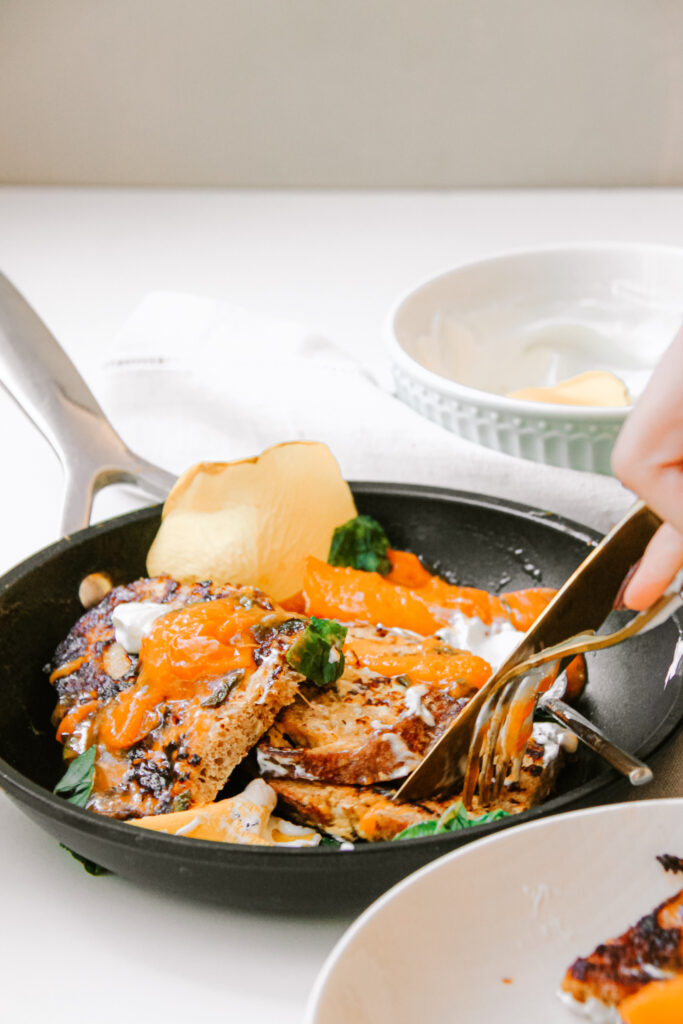
Why buying local?
Buying local can never harm. There are 2 main reasons I buy local. the first one is the impact it has on the environment. The transportation already makes a huge difference if the apricots come from Styria, which is 200km away or from Portugal, which is 2000km away. They do not need to be shipped by plane, they do not need a cooling system that lasts for days and is energy consuming. They come from Styria, maybe on the same day you purchase and use them.
Secondly, right now, more than ever it is important to support your local economy and local farmers. This crisis has hit every single one of us and some more than others. Of course apricots from Portugal may be cheaper because agricultural standard are not as high as they are here and therefore Austrian farmers have a harder time competing with farmers from abroad. But in order to keep the Austrian system alive and to fight through this crisis together we have to stay strong and support each other.
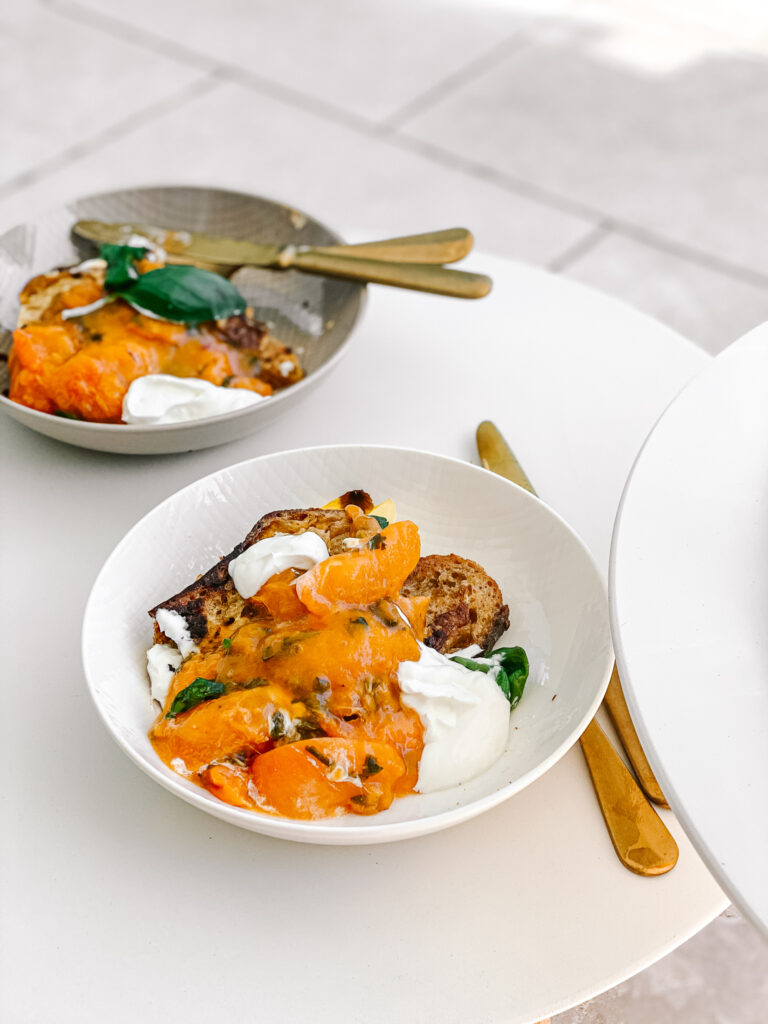
The last point: why buying organic
I think we have all heard that buying organic (Bio) food is better than purchasing non organic food! But why actually? Several reasons. When jr comes to fruit and veggies I would ALWAYS long for organic food when available. When being produced organic no pesticides or chemicals are allowed to be used. The use of those does not only harm our environment and soil in the long term but it actually is not good for our overall health. All of the things that have been added or injected into the food to help it trow faster and bigger can in the long term really mess up your gut and the bacteria in it and digestion. Those are things our bodies don’t know and therefore do not know how to really handle it. So really, try to buy organic. It is more expensive but your health should be worth the investment.
The other reason is, when it comes to animal products, the living conditions of the animals are better than for non-organic. Unfortunately they are not always much better or good, but organically produced animal products have higher standards.
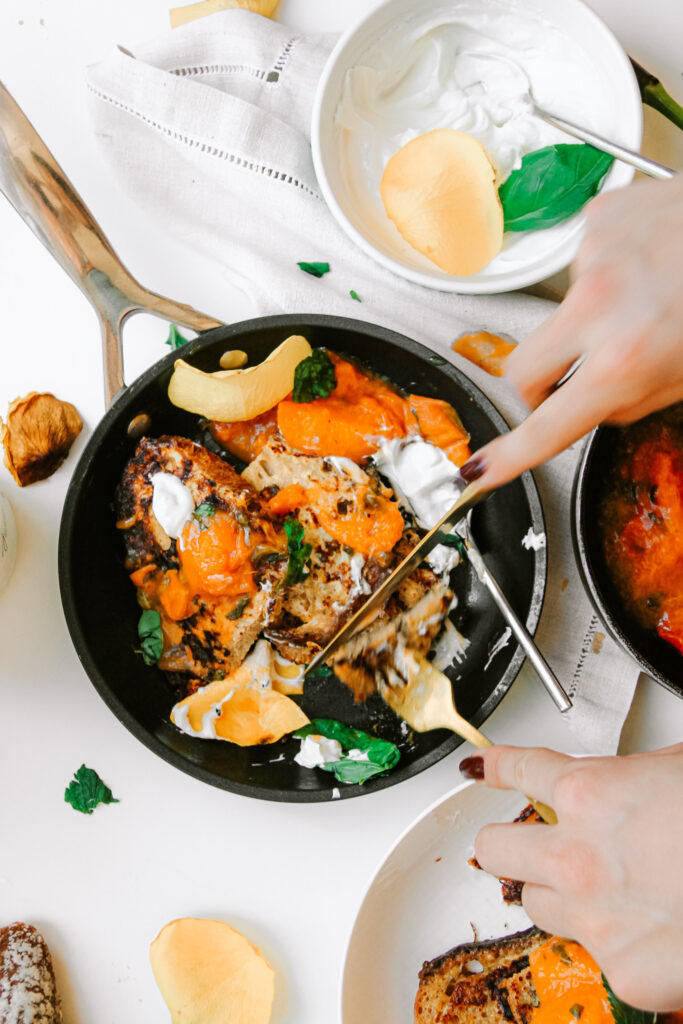
Why doing and considering all of this?
See, if we keep our food consumption and buying behavior as is, these are not very good conditions for the agriculture in the future. We need to make a change and we should start now. Producing less or no waste is essential as well as supporting local economy (especially after or while facing such a crisis). Furthermore it is better for our bodies and the environment when we make a change to organic shopping.
I know all of this information may be a little bit overwhelming at once. Still, I wanted to pack it all in one blog post to have the overview and because it is so important to me. I just wanted to give you a brief introduction into all of these aspects but I can also do a more detailed blog post on these topics if you are interested. But for now, I hope that you will love and enjoy this recipe and keep all of this information in the back of your head.
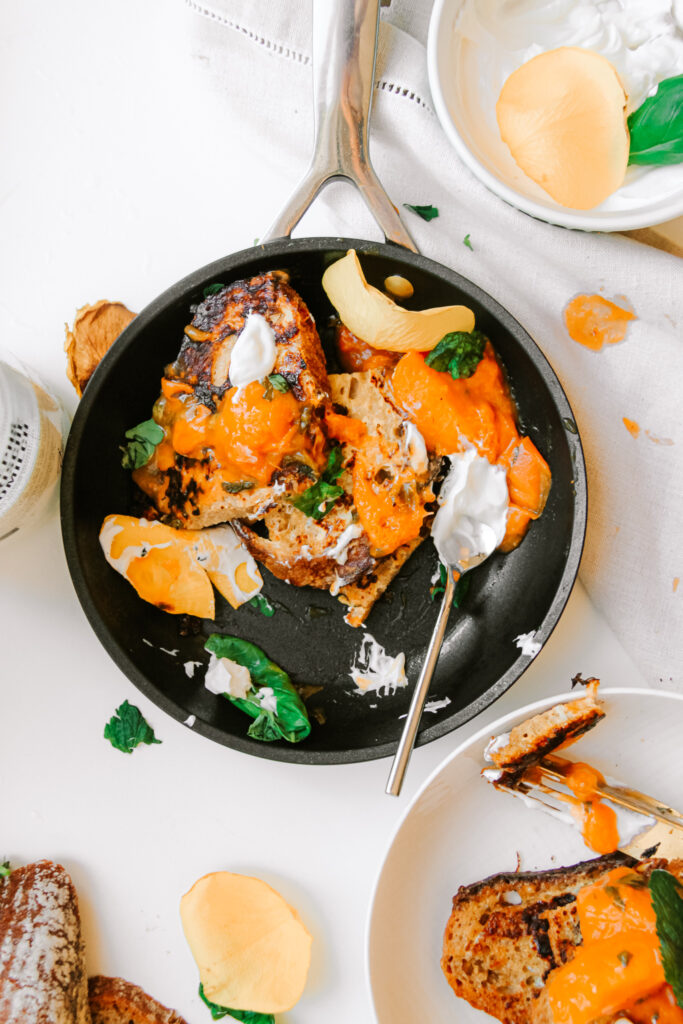
No waste Apricot Basil French Toast
What you will need
- 1 egg
- 150 ml milk
- 2 tbsp honey
- a pinch of sea salt
- 2 large slices of bread can be a few days old and stale
- 5-6 apricots
- 1 handful basil
- 1 tbsp butter or oil
- 150 g greek yoghurt
- 1 tbsp honey
How to
-
Combine the eggs, milk, honey and sea salt in a bowl. Add the slices of bread and dip them into the mixture. Let them soak in the liquid for about 2 minutes on each side.
-
In a pan heat up half of the butter. Slice the apricots and finely slice the basil. Add the apricots into the hot pan and sautée them for 2 minutes on high heat. Turn the heat down to medium and add the basil and honey and let simmer for about 5 minutes until it is a bit saucy.
-
Add the remaining butter to another pan and heat it up. Add the soaked bread and fry on each side for about 3 minutes on medium high. Take the bread out and place it on two plates. Add the remaining egg and milk mixture to the pan and make "sweet scrambled eggs".
-
In a seperate bowl combine the greek yoghurt with the honey and whisk until creamy and smooth. Top the french toast with the basil apricots and the whipped honey greek yoghurt. Serve with some more honey or maple syrup and enjoy!
Happy cooking,
Enjoy,
Katie // Une Petite Cuisiniere
